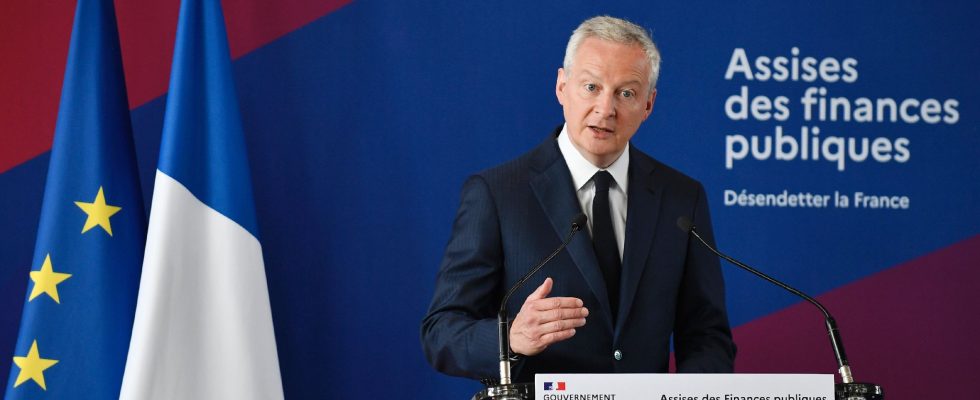The “whatever it takes” is well and truly over. This Monday, June 19, the executive recalled its desire to save money and proposed several avenues of work. They were presented on the occasion of the Assises des finances publics, organized in the presence of the Minister of the Economy Bruno Le Maire and the Prime Minister Elisabeth Borne. Thanks to these measures, which will be the subject of consultations, the government hopes to achieve at least 10 billion euros in savings by 2027.
This recovery comes as France has just escaped the sanction of the agency S&P Global, which maintained its credit rating. To restore its image, Bercy intends to put an end to the expenses incurred during the health and energy crises. “Now that we are back to normal, who would understand that we continue to spend so much?” assured Bruno Le Maire. The objective is to reduce the debt from 111.6% of GDP at the end of 2022 to 108.3% in 2027. And for this, the executive has a plan.
Health in the viewfinder
The government first proposes to tackle healthcare expenditure. In particular for sick leave, up 30% compared to the previous decade. Bercy therefore intends to “work” on “instruments” to “fight against excesses”. Another line of work: drugs, the prescription and purchase of which are considered too frequent. Bercy wants to put in place stricter rules to “guarantee the sustainability of the health system”.
Housing is also in its sights. Elisabeth Borne announced the end of the Pinel system and the overhaul of the zero-rate loan (PTZ), two measures which should make it possible to generate two billion euros in savings. With regard to support for employment, the government should let go, justifying this decision by the low unemployment rate. He proposes to reduce the price of training paid by the State for apprentices and to introduce a co-payment on the personal training account “to empower users”.
Finally, while the ministry claims to want to redouble its efforts on the subject of ecology, the fuel sector is singled out. The tax advantages available to certain professions such as road hauliers or farmers should gradually disappear by 2030. Bruno Le Maire specified that this switch would be accompanied by “compensation measures” to facilitate the transition.
End of energy shields
Will these efforts be enough? On the side of Bercy, a source indicates to AFP that it would be necessary to achieve at least 12 billion euros in savings just in one year to complete the draft budget 2024. Far, therefore, from the 10 billion planned for here the end of the quinquennium. But the ministry wants to be reassuring: the announcements made within the framework of the Assizes are only a “step”. Other strategies are put in place, such as stopping exceptional checks and ending energy shields. The one on gas will disappear from this month of June. That on electricity will be abolished at the end of 2024. At the same time, the government is waiting to reap the benefits of the APL and unemployment insurance reforms.
By reducing its public spending, the executive hopes to get back in the nails without increasing taxation. Social tension caused by inflation also complicates the equation. But Bruno Le Maire rejected “austerity” and said he did not want an “axe policy, which would kill our growth”. These efforts are considered all the more necessary as the economic environment is getting tougher, with the re-establishment of European budgetary rules next year and the sharp rise in interest rates which is increasing the debt burden.
